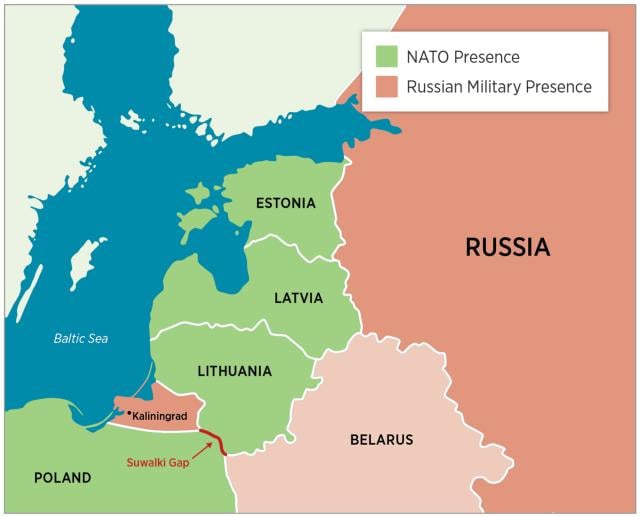As nations around the world ask their citizens to prepare for World War Three, anxiety about the state of geopolitics is at an all-time high. But a doomsday prepper, who is stockpiling in case of an international disaster has revealed she's ready for anything.
Rowan MacKenzie, from Missouri, is well-known for her expert advice in preparing for any disasters.
The 40-year-old began stocking up her cupboards 13 years ago and has spent over $350,000 (£277,000) on her supplies, as well as a basement bunker.
Now she is sharing which vital items we should all be stocking up on in preparation for the worst, saying it's important to act now before it's too late.
The real estate investor and homemaker said she has found some essential items on online sites like Amazon - and advises people to make the most of Black Friday deals to save money.
'I would focus more on medical supplies, food, and weapons above all,' she revealed.
'And the less you have to carry, the better, as you'll need some extra room.'
She added Black Friday deals are always a good time to stock up on bits you might need in the event of an emergency.
If you're worried about the state of the world, one doomsday prepper Rowan MacKenzie, from the US, has revealed what you need to stock up on
The items on offer range from high-energy food ration bars to freeze-dried apple chips.
Rowan clams the discount date, which is more commonly used to buy bargain Christmas presents, is the perfect time to also get prepping for a disaster.
On Amazon, soup fans can get 200 portions of leek and potato soup mix for £20.71 (equating to around 10p a portion) instead of £24.42.
Or you can get two days' worth of freeze-dried breakfast, lunch, and dinner for one person for £42.63 instead of £51.89, which works out at around £3.50 a meal.
While this is not exactly the cheapest food in the world, it has a 30-year shelf life, so it's arguably a bargain if you'd like to guarantee yourself a portion of beef stroganoff in 2054.
It comes after Justin Jones, from UK Prepping Shop in London, warned the threat of wars, cyber attacks and even solar flares meant it was important to take precautions.
He told MailOnline: 'Our biggest sellers are six-month freeze dried food kits that will last for 25 years and nuclear gas mask kits due to the increased risk of war.'
Below, he reveals the top 10 items he'd recommend keeping on hand in the event of a disaster.
The 40-year-old began stocking up her cupboards 13 years ago and has spent over $350,000 (£277,000) on her supplies, as well as a basement bunker
She often takes to social media to show her followers how her prepping is going
The real estate investor and homemaker said she found some essential items on Amazon and they shouldn't break the bank due to the extensive Black Friday deals this week
She began stocking up her cupboards initially, buying lifelong essentials, such as beans and rice, which she taught herself to preserve through trial and error
Rowan claims most of her stockpile won't expire for another 25 years and it's all thanks to her 'flawless' rotation system to ensure there's little-to-no wastage
The homemaker spent over $10,000 on having the underground space built into the basement of her home, where she keeps food and water, as well as defence weaponry
1. First aid kit
One obvious item Mr Jones recommends keeping to prepare for a disaster is a first aid kit.
He warns hospitals would have to focus only on the most serious cases in the event of another incident like a pandemic, making it wise to keep some back up supplies.
Materials in a typical kit include waterproof plasters, bandages, gloves, antiseptic, tweezers, medical tape, eyewash solution and sterile dresses.
'Lots of people neglect this, but if you get a cut and it ends up infected you won't last for long,' he says.
2. Water purification tablets
Mr Jones points to Devon's water crisis as evidence for the need to keep a supply of water purification tablets in storage.
South West Water (SWW) had to tell customers to boil their tap water after hundreds fell ill with diarrhoea, vomiting and stomach pains.
The mystery illness was believed to be linked to cryptosporidium, a parasitic bug that causes severe stomach issues.
'Bottled water is ok but you have to consider how long it will last,' Mr Jones says.
3. Emergency food
Disruption to food supplies caused by war or another global pandemic is top of the list for many preppers.
Mr Jones warns many Brits have become 'too reliant on technology' - pointing to the popularity of food delivery services like Deliveroo.
The shop owner recommends keeping long life food in the house as a precaution.
'This could be short term tinned food that easy to heat in the can if you need to or longer term freeze-dried meals, allowing for pets and babies too,' he says.
4. Energy bars
While long-life supplies are useful to have, they can take time to prepare and be less useful on the road, Mr Jones says.
'Energy bars will let you take on calories fast when you need it, and mean you don't only have to rely on long-term meal plans that need to be heated.'
5. Generator
Portable generators can be used to keep appliances running in the event of a power outage.
Mr Jones says one of the most essential appliances to keep going is a fridge or freezer for storing food.
But he adds: 'Many freezers will stay frozen for between 24 and 48 hours as long as they are full and the lid is closed.'
6. LED flashlight
A power cut during the long nights of winter would make movement difficult, but typical torches often require a lot of batteries to keep running.
Wind-up torches are one option, although Mr Jones believes LED flashlights are another good alternative.
'If the lights go out, a good one of these can last for days with the batteries on a low setting,' he says.
7. Multi band radio
The sudden outbreak of a war or natural disaster is often characterised by confusion - which can lead to mistakes.
Keeping a portable radio at home will allow you to keep in touch with the outside world, including hearing crucial updates from the government.
'You'll need a decent multi band receiver to listen to worldwide announcements and a stash of batteries,' Mr Jones says.
8. Heavy wool blankets
Lots of us will have memories of shivering our way through a boiler fault, so a supply of proper blankets is a must.
Many emergency kits contain foil blankets or other high-tech equivalents, but Mr Jones opts for a traditional woolen one.
'These are essential if the heating goes down, depending on the time of the year,' he says.
9. Gas masks
This would come in handing in case of a nuclear explosion or major bomb blast that leaves clouds of pollution in the air, according to Mr Jones.
'If you are far enough away from the blast zone and can stay inside for the first 72 hours your chances of survival are relatively high,' he says.
UK Prepping Shop sells a one-person nuclear survival kit – complete with a gas mask – for £565.
10. 'Bug out bag' for the car
Discussions around prepping often focus on the home, but Mr Jones believes it's worth preparing for the possibility of having to quickly leave the house.
As such, he recommends keeping a 'bug out bag' full of supplies in the boot of your car for use if needed.

 By Daily Mail (U.S.) | Created at 2024-11-28 11:46:55 | Updated at 2024-11-28 13:43:20
2 hours ago
By Daily Mail (U.S.) | Created at 2024-11-28 11:46:55 | Updated at 2024-11-28 13:43:20
2 hours ago








